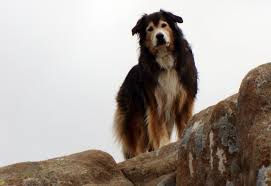
Faroese Sheepdog
Conditions of detention
Faroese Sheepdogs thrive in environments where they have plenty of space to roam and exercise. They are well-suited to rural and suburban homes, particularly those with large, fenced yards.
Useful Fact: They require regular physical activity and mental stimulation to stay healthy and happy, making them less suited for apartment living unless they receive ample outdoor exercise.
Nutrition and diet
A balanced diet of high-quality commercial dog food, appropriate for their age, size, and activity level, is essential. They benefit from a diet rich in protein to support their muscle development and energy needs.
Useful Fact: Monitoring their food intake and weight regularly is important to prevent obesity, which can affect their overall health and performance.
Health
Faroese Sheepdogs are generally healthy dogs but can be prone to certain genetic conditions such as hip dysplasia and eye problems. Regular veterinary check-ups are crucial for maintaining their health.
Useful Fact: Early health screenings and responsible breeding practices can help reduce the risk of genetic disorders in the breed.
Grooming and care
The Faroese Sheepdog has a dense double coat that requires regular grooming to prevent matting and reduce shedding. Brushing several times a week helps maintain their coat’s condition.
Useful Fact: During shedding seasons, more frequent brushing is necessary to manage loose hair and keep their coat healthy.
Education and training
They are intelligent and eager to please, making them relatively easy to train with positive reinforcement methods. Consistent training from an early age is essential.
Useful Fact: Early socialization and obedience training help them develop into well-mannered and confident adults, especially given their working instincts.
Toys and entertainment
Interactive toys, puzzle feeders, and activities that challenge their mind and body are ideal. They enjoy games that involve herding or problem-solving, which cater to their natural instincts.
Useful Fact: Providing a variety of toys and activities helps keep them mentally stimulated and prevents boredom.
Safety
A secure and safe environment is crucial, especially when they are outdoors. Their herding instincts can lead them to chase after moving objects if not properly supervised.
Useful Fact: Training them to respond to recall commands enhances their safety during outdoor activities.
Accessories
Durable leashes, collars, and harnesses are necessary, along with comfortable bedding and crates for rest. Grooming tools like brushes and nail clippers are also essential.
Useful Fact: Using a harness can provide better control during walks and reduce strain on their neck.
Socialization
Early and ongoing socialization with different people, animals, and environments is vital to prevent shyness or aloofness and ensure they are well-adjusted.
Useful Fact: Regular interactions with other dogs and exposure to various settings help them develop into confident and friendly pets.
Travel and Transportation
They adapt well to travel, needing secure crates or harnesses for safety during car trips. Due to their size, ensure your vehicle can comfortably accommodate them.
Useful Fact: Frequent breaks during travel help them manage stress and remain comfortable.
Behavior and psychology
Faroese Sheepdogs are known for their energetic, intelligent, and loyal nature. They form strong bonds with their families and enjoy being active and social.
Useful Fact: Understanding their need for companionship and engagement helps manage their behavior effectively.
Legal aspects
Owning a Faroese Sheepdog may involve adhering to local pet regulations, including leash laws and registration requirements.
Useful Fact: Familiarizing yourself with local laws and regulations prevents legal issues and ensures responsible ownership.


